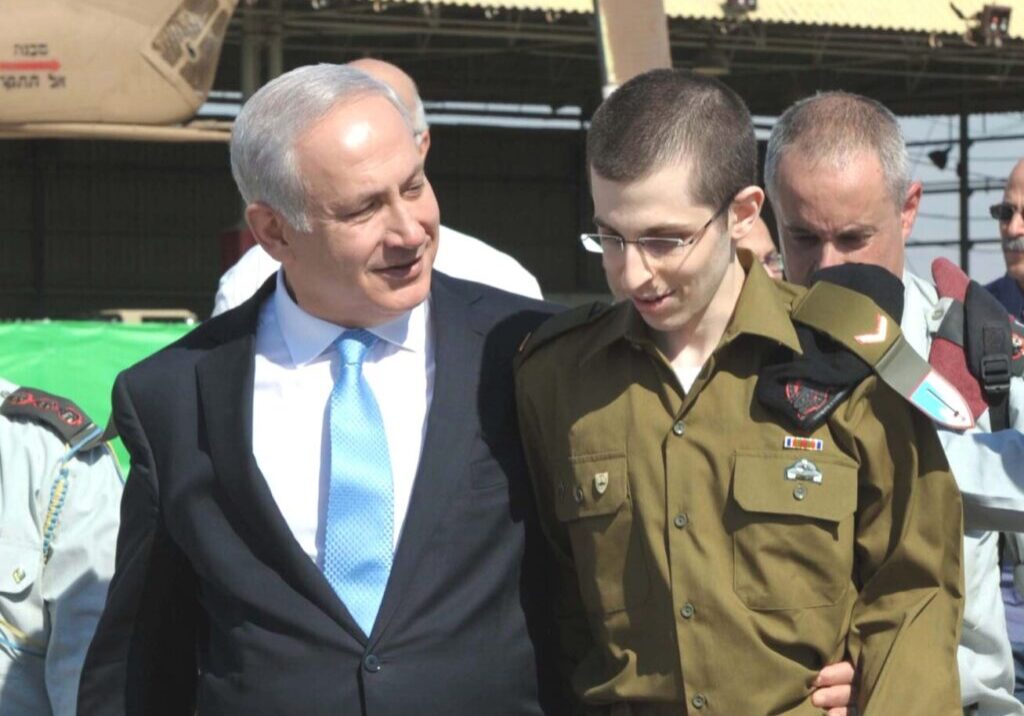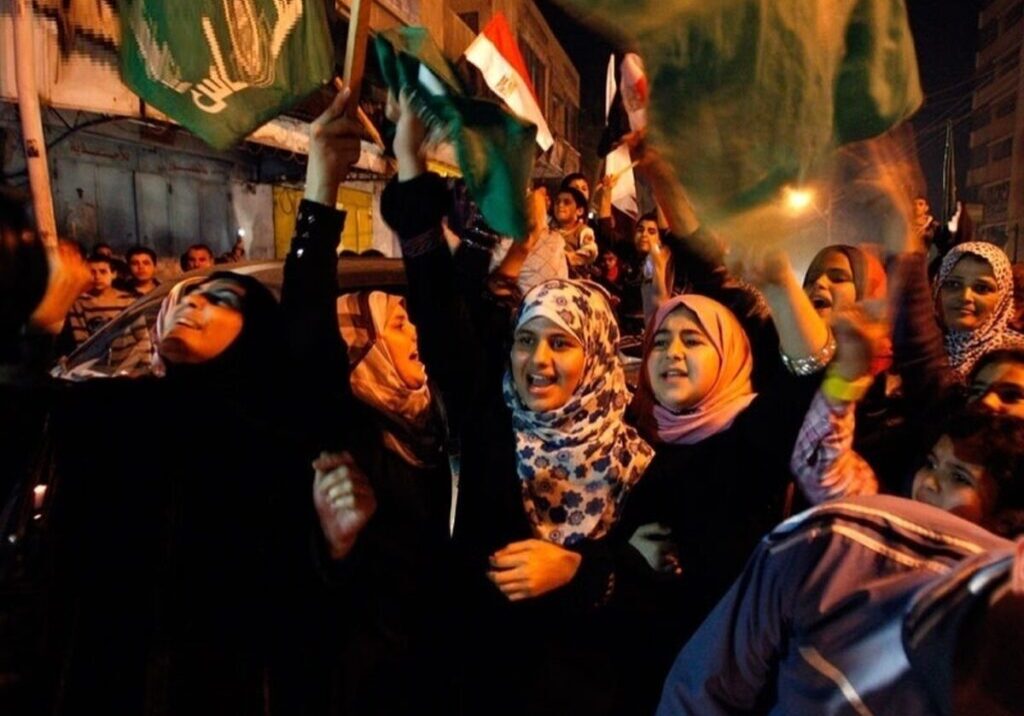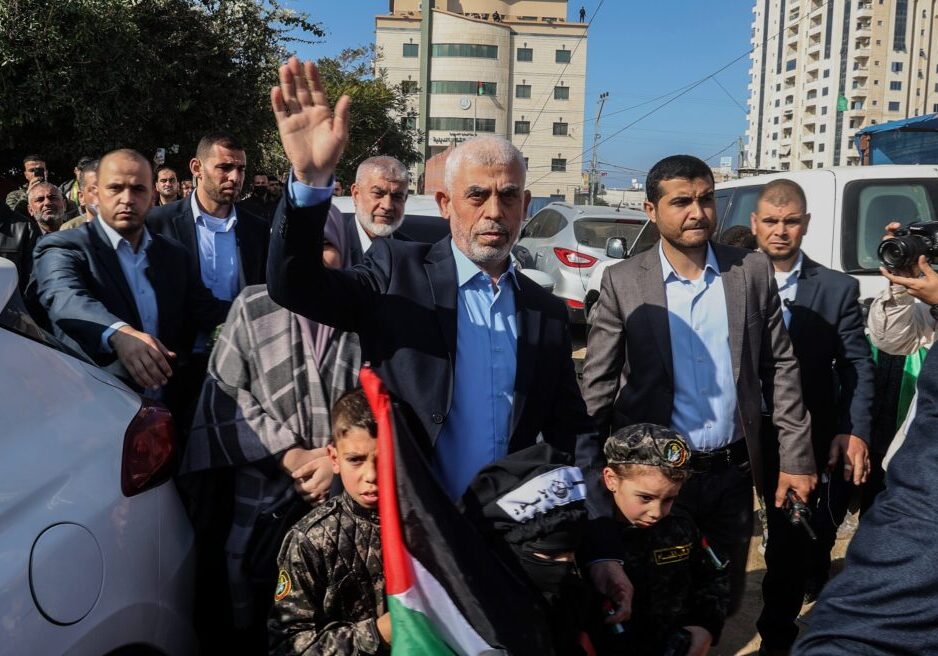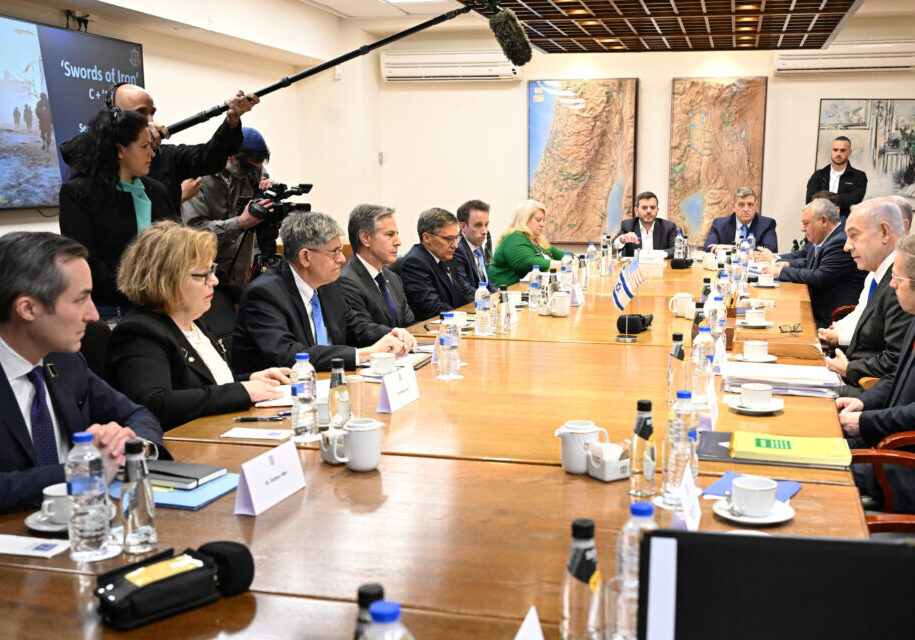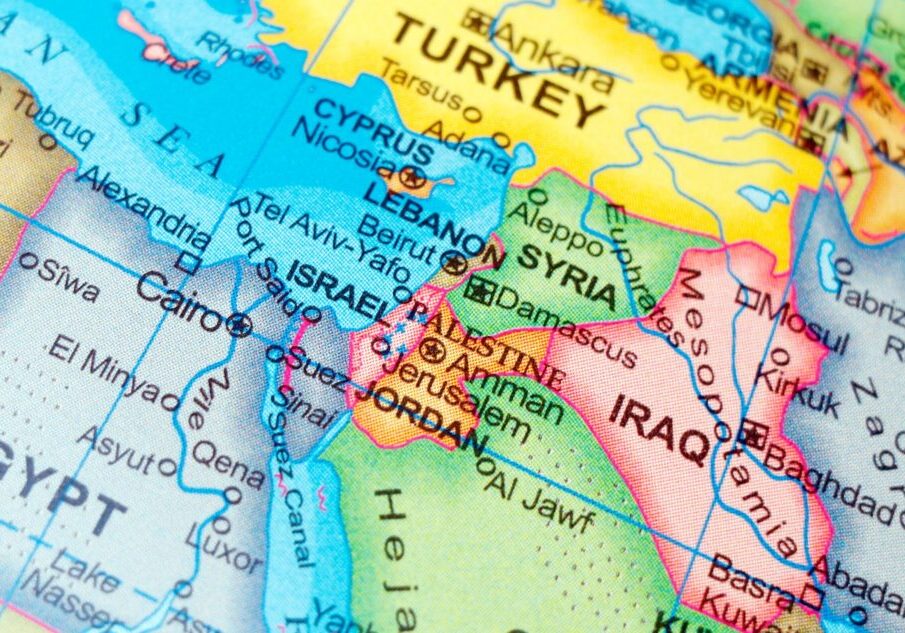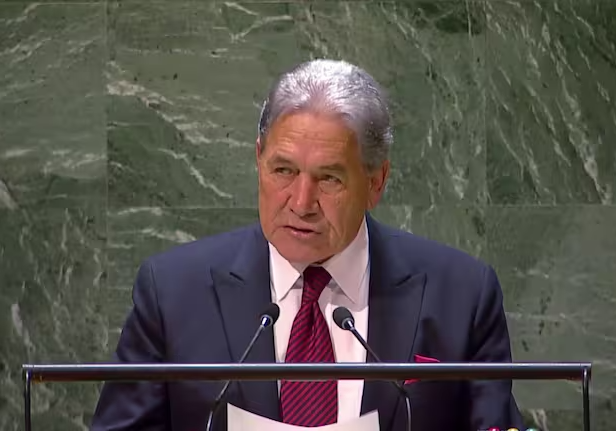Australia/Israel Review
Origins of the Palestinian UDI bid
Sep 26, 2011 | Jonathan Schanzer
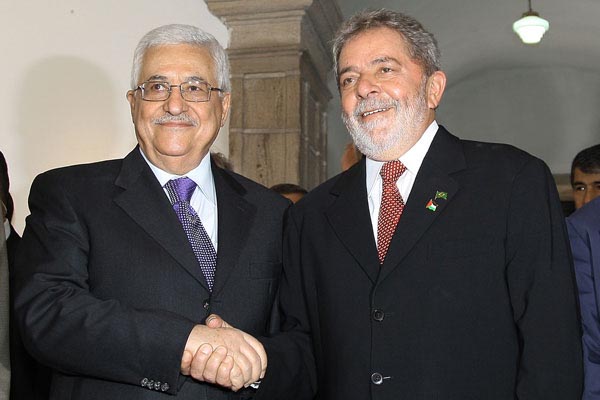
By Jonathan Schanzer
In late September 2011, the Palestinian Authority (PA), under the leadership of Mahmoud Abbas, set out to bypass negotiations with Israel and attempt to declare statehood at the United Nations. Many analysts have offered their speculation as to how the Palestinians might use their UN resolution to go after Israel in international legal fora, and perhaps launch a wider worldwide boycott, divestment, and sanctions (BDS) campaign to pressure the Jewish state to relinquish disputed territory in the West Bank. But few have looked back at the origins of the Palestinians’ initiative, which offers significant insights into their strategy.
Between Bush and Lula
The Unilateral Declaration of Independence, or UDI, initiative was reportedly born in May 2005, when Abbas attended the summit of South American and Arab states in Brazil, where he met with President Luiz Inácio “Lula” da Silva. Lula is said to have promised Abbas that, toward the completion of his second term ending January 1, 2011, he would rally support among Latin American states for the Palestinians to declare independence at the United Nations.
By working with Lula to this end, Abbas reneged on promises he made to US President George W. Bush that he would seek a negotiated peace with Israel. “Let us start implementing the road map,” he said upon being elected president of the Palestinian Authority in 2005, “and in parallel let us start discussing the permanent-status issues so that we can end, once and for all, the historic conflict between us.”
It is worth noting here that Abbas would likely not have become president of the PA without Bush’s help. After long-time Palestinian leader Yasser Arafat died of a mysterious illness in November 2004, the Bush Administration embraced Abbas as the next leader, owing primarily to his stated position on the peace process.
When the West Bank and Gaza Strip fell into utter disarray after Arafat’s death, the State Department pledged to the Palestinian Authority “a substantial overall package of assistance… which in 2004 has totalled about US$200 million.” Washington further pledged additional funds for elections, plus another US$50 million in “direct budgetary support to the Palestinian Authority.”
On January 9, 2005, the Palestinians held presidential elections. Bush affirmed that the United States stood “ready to help the Palestinian people realise their aspirations,” and he was heartened to see Abbas, the man he had backed as an alternative to Arafat, win at the polls.
Bush met with Abbas in May 2005, only three weeks after Abbas’ meeting with Lula. In exchange for Abbas’ commitment to a negotiated peace with Israel, Bush pledged his political support, along with a US$50 million aid package to help build homes in the Palestinian territories. The two men met again at the White House on October 20, 2005, and Bush reiterated his belief that Abbas was an advocate of peace.
Bush’s support for Abbas was unconditional. The President backed Abbas even after the January 2006 legislative elections, in which Hamas won by a landslide and dealt a crushing blow to Abbas’ Fatah faction. When Congress cut aid to the Palestinians in response to Hamas’ representation in the Palestinian Authority, Bush still found ways to support Abbas. He authorised additional funds for Abbas’ administrative and personal security costs, on grounds that they were “in the national security interest of the United States.”
Even after Hamas took over the Gaza Strip in 2007, Bush did not give up on Abbas. He assured the Palestinians of his “vision of a peaceful state called Palestine as a homeland for the Palestinian people.” Bush then launched the Middle Eastern Investment Initiative in the West Bank, which guaranteed up to US$228 million in loans for Palestinian small businesses.
Abbas, for his part, continued to assure President Bush that the Palestinians were prepared to return to the negotiating table with Israel. Meanwhile, he continued to seek support unilaterally. In February 2008, Costa Rica announced its recognition of a Palestinian state. In April 2009, the Venezuelan Government inaugurated a Palestinian embassy in Caracas.
In his hip pocket, Abbas also held the 104 countries that had recognised Yasser Arafat’s declaration of a Palestinian state at the UN General Assembly in 1988. Admittedly, a number of these were former Soviet satellites that had since undergone democratic transitions and enjoyed warmer ties with Israel, but Abbas knew he had substantial support, and that he could find more.
The Fayyad Program
In August 2009, Palestinian Prime Minister Salam Fayyad released an historic document at the 13th Palestinian National Authority meeting. “Palestine – Ending the Occupation, Establishing the State” gave a shot in the arm to the Abbas plan by laying out specific steps designed to build a state before “liberating” land from the Israelis. Fayyad’s document laid out a two-year plan for state-building as an alternative to slow and painstaking negotiations with Israel.
The plan received scant attention in the West. American headlines were dominated with speculation of a showdown between Israeli Prime Minister Benjamin Netanyahu and the new American President Barack Obama. But the Fayyad plan immediately appealed to the Palestinians. The commonly held view among Palestinians was that US-led negotiations with Israel had repeatedly yielded nothing over the years, despite the fact that the Israelis had offered up several attractive peace plans during the Oslo years.
The Fayyad plan also appealed to Abbas, who by January 2009 was already serving well past the expiration of his presidential term, and had repeatedly stated that he sought to exit political life. Former Palestinian officials confirm that Abbas believes the unilateral bid for statehood could be his lasting legacy.
Fayyad’s plan also appealed to the international community. Having spent the last several years establishing a track record of state-building, Fayyad had garnered significant praise in the West. In August 2009, New York Times columnist Thomas Friedman coined the term “Fayyadism” to describe the Palestinian leader’s approach to governance: basing legitimacy on what was billed as transparent and efficient administration.
Latin American Support
Abbas leveraged Fayyadism to its fullest in the southern hemisphere. In November 2009 he visited Argentina, Brazil, Chile, and Paraguay. During Abbas’ visit that year in Venezuela, the Chavez Government formally announced its support for Palestinian statehood.
Lula, for his part, continued to advocate for Abbas. In March 2010, he toured Israel and the Palestinian territories, criticising the construction of Jewish settlements in the West Bank. Last December, as expected, just before Lula’s term was set to expire, Brazil recognised an independent Palestinian state.
What followed was a flood of Latin American support for recognition of Palestinian statehood. Argentina quickly expressed its support for a Palestinian state coinciding with the pre-1967 armistice lines while Ecuador and Bolivia soon recognised Palestine as a sovereign state, but not explicitly defined by the 1967 lines.
In January 2011, Chile, Guyana, and Paraguay joined the parade. In February, Suriname jumped aboard, followed by Uruguay in March. In June, the Dominican Republic announced its support, and then Peru joined in July. The unilateral initiative was gaining momentum.
Western Support
European support was also a key for the Palestinian manoeuvre. In June 2010, France announced that it would upgrade the Palestinian delegation in Paris to a diplomatic mission. Spain, Portugal, and Norway soon did the same. While these moves were not concrete recognitions of statehood, they signalled a preparation to recognise.
On August 30, 2010, Fayyad presented his government with a 51-page document entitled “Homestretch to Freedom”, which outlined his state-building achievements and his plans. They included security reforms, economic reforms, new infrastructure, and bolstering the rule of law. Through this document, Fayyad appeared to indicate that his goal for statehood in 2011 was still on track.
Fayyad released this document – which was intended to bolster the unilateral declaration of statehood initiative – only days before Obama’s grand announcement that the Palestinians and Israelis would return to the negotiating table.
“Homestretch to Freedom” may have appeared to run counter to Obama’s Middle East policies, but in kicking off his plans for renewed diplomacy, Obama also stated that he expected the Palestinians to have an independent state one year from the launch of talks. Indeed, his target date for Palestinian statehood was September 2011 – the date the Palestinians had been shooting for all along.
Obama’s policy predictably sputtered. Despite the Palestinians’ subsequent refusal to return to the table, European governments embraced the narrative that the continued construction of Israeli settlements was responsible for the lack of progress.
On December 13, 2010, a group of EU foreign ministers announced that they would recognise a Palestinian state at a vague point in the future. Then-French Foreign Minister Bernard Kouchner stated that Paris might recognise a Palestinian state if Palestinian-Israeli negotiations remained deadlocked. Indeed, it appeared that France was leading the charge from Europe.
The Home Stretch?
Europe has increasingly moved toward recognising a Palestinian state. In the first months of 2011, Cyprus, Greece, and Ireland all upgraded their Palestinian diplomatic delegations. In March, the United Kingdom and Denmark did the same. In May, Slovenia and Spain stated that they would recognise a Palestinian state, followed by Iceland in June. In July, Bulgaria, Belgium, and Norway announced that they, too, would back the Palestinian bid for independence.
As of early September 2011, the international community remained polarised over the Palestinian bid for statehood at the UN. Italy, Germany and Canada characterised the measure as counterproductive; others, including a unified Arab League, described it as long overdue.
To the majority of countries, the issue had become a binary one. States were either for statehood or against it. Few, if any, countries sought to find language that might alleviate the building tensions.
But as long as the debate took place at the United Nations – a forum in which the vast majority of resolutions on the Middle East criticise Israel – it appeared that the Palestinians would maintain their advantage. Indeed, the Palestinians announced in August that they had secured the support of no fewer than 122 of the 193 countries eligible to vote at the UN General Assembly. That meant that if only six countries abstained, they would secure the two-thirds necessary (128 states) for recognition.
What Palestinian leaders plan to do in the aftermath of their manoeuvre at the UN remains to be seen. Their options range from a legal campaign to a series of non-violent protests to a full-blown violent intifada. Regardless of which path they take – and it could be a combination – this initiative marks a new phase, now six years in duration, in which Palestinian leaders have forsaken diplomacy in exchange for a position that may keep them at odds with Israel for many more years to come.
Jonathan Schanzer is Vice President for Research at the Foundation for Defense of Democracies and author of Hamas vs. Fatah: The Struggle for Palestine (Palgrave, 2008). © inFocus Magazine, reprinted by permission, all rights reserved.
Tags: Palestinians

